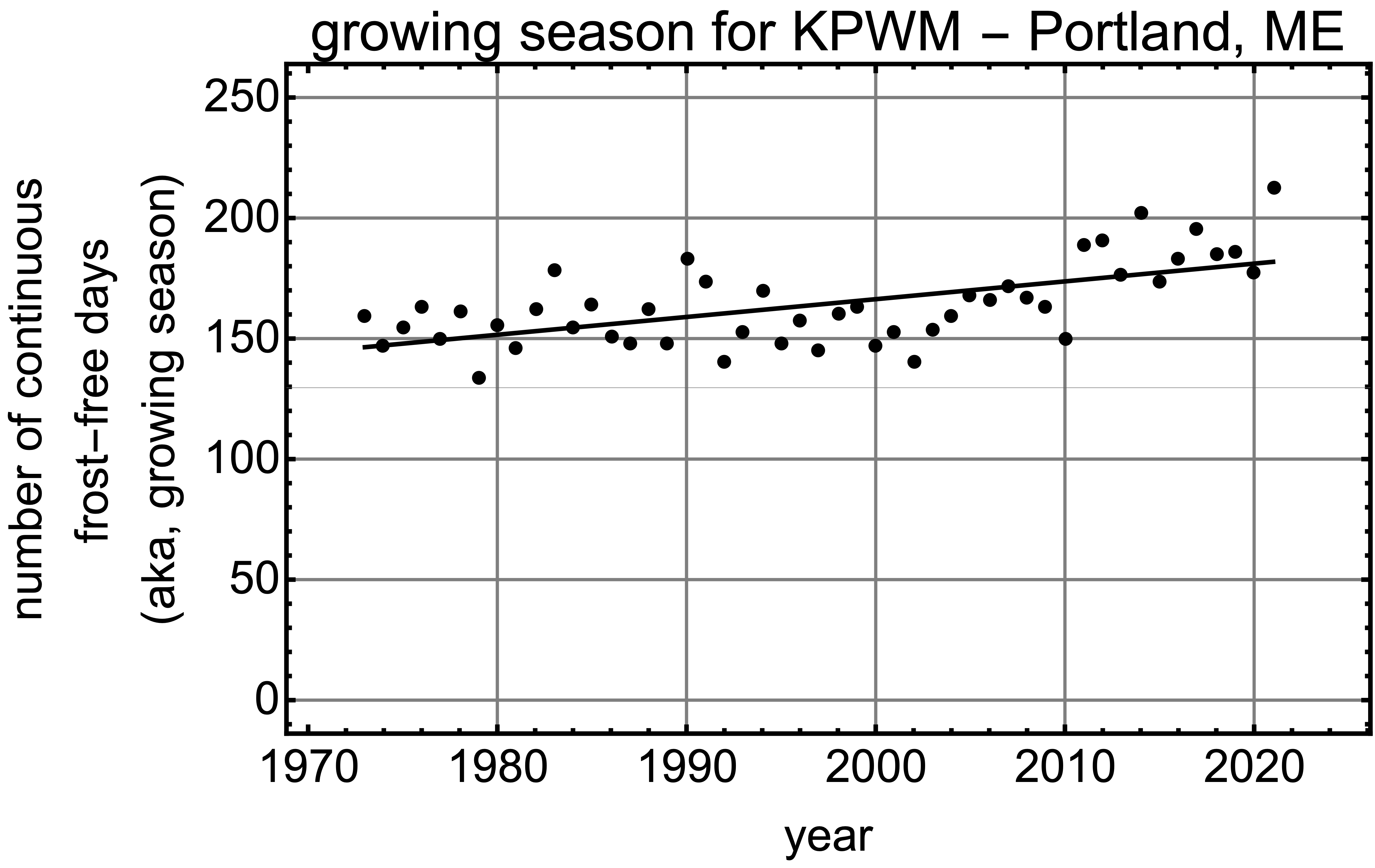
Article by David von Seggern
The length of the growing season (contiguous string of frost-free days) is one of the indicators of global warming that is quite sensitive to even small temperature increases. Here in Portland in 2021 we have experienced the longest growing season on record since 1973 at the Portland airport’s station KPWM, as shown in the graphic. The graphic illustrates the increasing length for the entire time of robust records of the National Weather Service, amounting to nearly 50 years. The line is a fit to the data, but it is clear that the last 10 years have been significantly above the average. Remarkably, the record set in the year 2021 shows nearly a two-month increase in growing season compared to the first available years in the 1970s. Other National Weather Service stations around the state show similar, but not as pronounced, trends.
Although some, for instance gardeners, may welcome a longer growing season in Maine, this indicator is merely one more glaring piece of evidence for global warming which, in total, will adversely impact our ecosystems around the globe and bring catastrophes to exposed communities. Maine has already seen troublesome warming in the Gulf of Maine where the 2020 summer saw water temperatures more than 2°C above the long-term average. And Portland, Maine has seen similar warming in Casco Bay.
This warming off the Maine Coast has apparently diminished fishing stocks greatly and is a threat to the fishing, lobstering, and other related industries. A thorough understanding of how warming affects our marine food production is the subject of research at many local and regional facilities, including the Gulf of Maine Research Institute in Portland. Among other research projects, the institute has a project called Ecosystem Impacts of Warming.
Although one may see some benefit to agriculture in warming, the impact on marine production is clearly heading the other direction. Although there may be winners and losers due to global warming, the losers are sure to be overwhelming as the planet heats up.